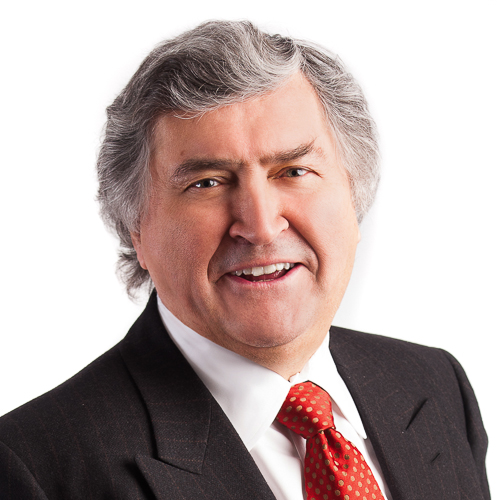Although official results will not be known for several weeks, all indications are that Indonesia’s incumbent President Joko Widodo (Jokowi) has easily won reelection. Exit polls and quick count results suggest a lead of 8–10 percentage points over his rival Prabowo Subianto, although the latter disputes the results. It’s likely Prabowo will challenge the outcome in court, as happened after the last presidential election in 2014, but the appeal is likely to fail, and the challenger is likely to accept the verdict, as he did previously. This win is good news for Indonesia which, while frequently overlooked, is the world’s largest Muslim-majority country and has the largest economy in the Muslim world, and so this is also good news for the US and the world generally.
The months-long election campaign was marked by religious tensions, and both candidates sought hard to stress their Muslim credentials. However, Prabowo, while having close Christian relatives and not markedly religious himself, was the one who seemed likely to make genuine concessions to and alliances with Islamist radicals.
One of these was Rizieq Shihab, the leader of the Islamic Defenders’ Front (FPI), a thuggish group which has used intimidation and violence against Shia, Ahmadiyya, Christians, and night clubs, and anything else its leaders declared un-Islamic. Rizieq was one of the major organizers of the massive demonstrations against former Jakarta Governor Basuki Tjahaja Purnama (BTP), an ethnic Chinese Christian and friend of Jokowi, who was subsequently jailed on trumped-up blasphemy charges.
Rezieq himself was investigated for pornography, blasphemy, and other offenses, and fled to Saudi Arabia, where he remains. In June 2018, Prabowo visited Rezieq in Mecca to win his endorsement, and promised to allow the FPI leader to return to Indonesia without charges should he win. Rizieq returned the favor, telling his supporters that they must vote for Prabowo if they wanted homosexuality banned. In February 2019, the chairman of the Habib Rizieq Shihab Center, Abdul Ramadan, declared that “[Rizieq Shihab] said that if Prabowo won, he would go home.”
The week before the election, Prabowo organized a mass rally, which featured only Muslims and had the air of a religious revival. Rizieq addressed the crowd via a video from Saudi Arabia. On election day, Ben Rogers asked an FPI cadre about FPI’s vision for Indonesia. He replied, “Indonesia is a Muslim-majority country. We want Islamic teachings to be implemented in full in every area of life… Those who do not implement them, we give them a warning, and then we send in our Islamic Defenders Army.” Rogers asked why FPI was supporting Prabowo. The reply was, “Because he has promised us he will implement our vision.”
Jokowi, in office since 2014, has been critical of more restrictive forms of Islam, stressed religious toleration, and emphasized that the influential and increasingly radical semi-official Indonesian Ulama Council (MUI) is simply an advisory body and does not make government policy. During the election, there were repeated attempts to portray him as anti-Muslim. On February 25, 2019, three people were arrested for an online video that claimed that, if reelected, the president would ban the Muslim call to prayer, force women to remove their hijab in public, and legalize gay marriage. Consequently, Jokowi has sought to burnish his Islamic credentials. Three days before the election, he even set off on a pilgrimage to Mecca.
In a notable move, Jokowi also selected Ma’aruf Amin as his vice-presidential running mate in order to head off criticism from more conservative Muslim groups. This was remarkable given that in 2017 Ma’aruf was chairman of the MUI and in that capacity had accused BTP of blasphemy and called for him to be arrested. He was also a key witness at the trial and testified that BTP was a blasphemer. This led many to worry that Jokowi was seeking to appease radical forces.
However, Ma’aruf is 75 and has a background in politics rather than Islamism. After being selected, he shifted some of his stances and said that he regrets his previous testimony against BTP and that the former governor had been imprisoned. He also advised the MUI to steer clear of politics. In turn, after serving his sentence, BTP said that, if wanted, he was willing to campaign for his old friend Jokowi and was even willing to share a campaign stage with Ma’aruf.
Hence, Jokowi’s outreach to more conservative Muslim groups can be understood as shorter-term election tactics, while Prabowo’s outreach to more radical elements signaled possible future alliances. Consequently, while a Jokowi administration may not be able to put a damper on radicalization, it is much more likely to do so than one led by Prabowo.
Indonesian law limits presidents to two terms, so Jokowi cannot run again and has more freedom to implement an agenda closer to his own convictions. In the short term, two tests will indicate the role of religion in Indonesia. First, will the government circumscribe the authority of the MUI, and second, will it rein in local governments that, in violation of the constitution, have been enforcing contested Islamic precepts? These will be bellwethers for whether Indonesia strengthens its tolerant traditions or slides into radicalism.
Also, Prabowo is the son-in-law of the last dictator, Soeharto, and a former special forces general suspected of human rights abuses, while Jokowi is the first Indonesian president to come from outside the military and political establishment. So, his reelection helps cement democracy in Indonesia, a vitally important reason the US should warmly welcome it.
Paul Marshall is Wilson Professor of Religious Freedom at Baylor University, a senior fellow at the Hudson Institute and the Religious Freedom Institute, and a contributing editor of Providence.
Photo Credit: Jokowi in October 2013, by Eduardo M.C., via Flickr.






